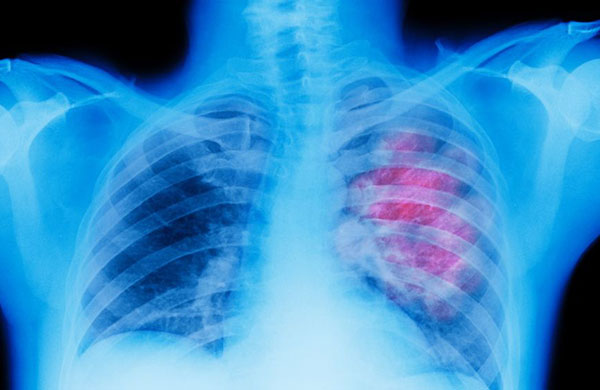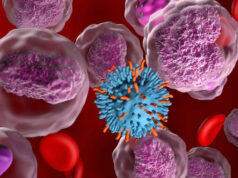
As U.S. relations with Cuba thaw, one unexpected byproduct could be the introduction of a Cuban-developed lung cancer vaccine in the U.S. Called Cimavax, an innovative vaccine that was developed to help treat lung cancer patients in Cuba, where lung cancer is one of the leading causes of death.
The immunotherapy treatment could be coming to the U.S. thanks in part to the Roswell Park Cancer Institute in Buffalo, New York, which is working with Cuba’s Center for Molecular Immunology to bring the treatment to the U.S.
ABC News spoke to Dr. Kelvin Lee, the chairman of the Department of Immunology at the Roswell Park Cancer Institute, to learn more about the new medication.
What is Cimavax?
Cimavax is a vaccine designed by Cuba’s Center for Molecular Immunology to help lung cancer patients by targeting a specific hormone that can encourage tumors to grow. The vaccine works by creating a protein in the body that primes the immune system to attack a hormone called epidermal growth factor (EGF), a naturally occurring hormone in the body.
Lee said the naturally occurring hormone can help feed deadly tumors, and by vaccinating a patient, doctors can attempt to stop a tumor’s growth.
“The idea is that … the Cimavax vaccine induces a immune response” to stop EFG production, explained Lee. “The tumor is being starved.”
Lee said patients get one shot a month to help stimulate their immune system to attack the growth hormone.
When will it be available?
The Roswell Park Cancer Institute is hoping to win approval from the U.S. Food and Drug Administration for a phase I study in the next six to eight months, Lee said.
The initial study would aim to confirm what previous studies in Cuba have found — that the vaccine is safe for patients and has minimal side effects. Lee said a phase I study might have between 12 to 18 patients initially.
Is it available anywhere else?
Cimavax is also approved in Peru and Cuba. In Cuba, the treatment is so easy to administer that primary physicians can give it to patients, said Lee.
Can it cure lung cancer?
Lee clarified that the drug is designed to help stop tumor growth but is not designed to cure cancer or put patients in remission.
A 2014 study of lung cancer treatments cited a small 2003 study that found patients with advanced lung cancer survived approximately five to six months longer, if they were under the age of 60.
Dr. Elizabeth Mittendorf, an immunotherapy expert and associate professor in the department of surgical oncology at MD Anderson in Houston, said news that the vaccine might be tested in the U.S. is “exciting.”
“Politics certainly should not prohibit good science from being further evaluated,” said Mittendorf, who clarified that the vaccine will need to be tested in accordance with rigorous FDA safety trials before it can help patients.
Could the shot work on other cancers?
If found successful, the vaccine could be tested on other cancers that use EGF to grow quickly, Lee said. This could include breast cancer, pancreatic cancer or head and neck cancer.



